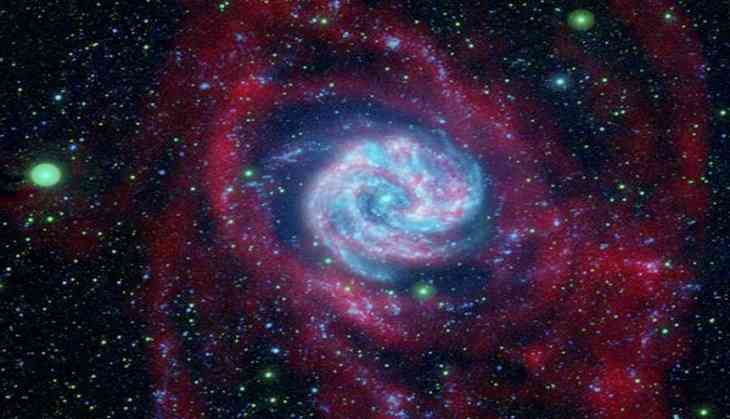
Monster colliding black holes might be lurking on the edge of spiral galaxies, a recent study has suggested.
According to the researchers at Rochester Institute of Technology, the outskirts of spiral galaxies, like our own, could be crowded with colliding black holes of massive proportions and a prime location for scientists hunting the sources of gravitational waves.
The study identified an overlooked region that may prove to be rife with orbiting black holes and the origin of gravitational-wave chirps heard by observatories in the United States and Italy. Identifying the host galaxies of merging massive black holes could help explain how orbiting pairs of black holes form.
Conditions favourable for black-hole mergers exist in the outer gas disks of big spiral galaxies, according to lead author Sukanya Chakrabarti.
Until now, small satellite or dwarf galaxies were thought to have the most suitable environment for hosting black-hole populations: a sparse population of stars, unpolluted with heavy metals like iron, gold and platinum - elements spewed in supernovae explosions - and inefficient winds that leave massive stars intact.
Chakrabarti realized the edges of galaxies like the Milky Wavy have similar environments to dwarf galaxies but with a major advantage - big galaxies are easier to find.
Co-author Richard O'Shaughnessy said that this study showed that, when predicting or interpreting observations of black holes, they need to account not only for differences between different types of galaxies but also the range of environments that occur inside of them.
"If you can see the light from a black-hole merger, you can pinpoint where it is in the sky," Chakrabarti said. "Then you can infer the parameters that drive the life cycle of the universe as a whole and that's the holy grail for cosmology. The reason this is important is because gravitational waves give you a completely independent way of doing it so it doesn't rely on astrophysical approximations."
The study will be published in Astrophysical Journal Letters.
-ANI







![BJP's Kapil Mishra recreates Shankar Mahadevan’s ‘Breathless’ song to highlight Delhi pollution [WATCH] BJP's Kapil Mishra recreates Shankar Mahadevan’s ‘Breathless’ song to highlight Delhi pollution [WATCH]](http://images.catchnews.com/upload/2022/11/03/kapil-mishra_240884_300x172.png)

![Anupam Kher shares pictures of his toned body on 67th birthday [MUST SEE] Anupam Kher shares pictures of his toned body on 67th birthday [MUST SEE]](http://images.catchnews.com/upload/2022/03/07/Anupam_kher_231145_300x172.jpg)






